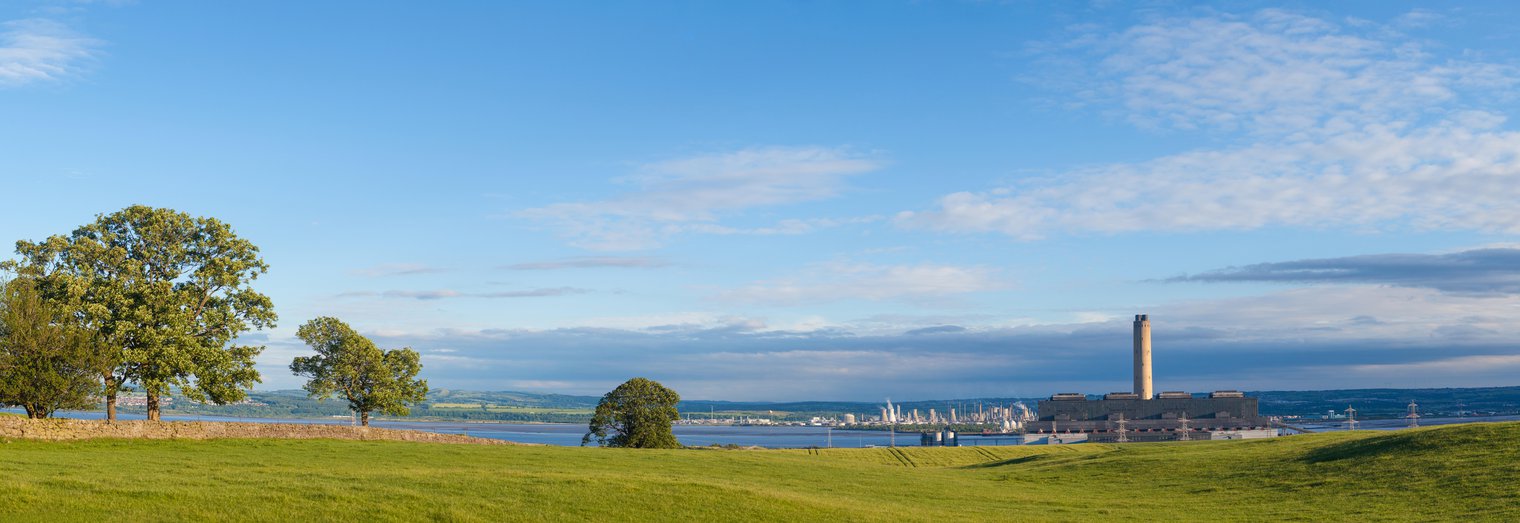How the Story of Modern Scotland is the Story of Scottish Coal

By Jamie Maxwell
April 13, 2021 - Scotland’s coalfields once sprawled across the central belt, from Ayrshire and Lanarkshire on the west coast to Fife and the Lothians on the east. In 1947, 77,000 people worked in Scottish coal. By 1990, that number had slumped to just 6,000. Popular history dictates that the UK coal industry was rapidly wound down during the latter part of the 20th century by Conservative politicians hostile to organized labour. But as Ewan Gibbs explains in ‘Coal Country: The Meaning and Memory of Deindustrialization in Postwar Scotland’, the reality is more complicated.
Competition from cheaper fuels and the emergence of nuclear power pushed British coal into decline soon after the Second World War. In the 1950s and ‘60s, governments and mining unions negotiated the closure of nationalised pits and collieries. In the 1970s, there was a sharp uptick in industrial action. In the 1980s, Margaret Thatcher abandoned the consensual strategy of previous decades in favor of a more militant – and politicised – approach to the sector. Coal mining in Scotland had already shed half its pre-war employee base by the time Harold Wilson became prime minister in 1964. That base had halved again by the time Thatcher entered Downing Street 15 years later.

Longannet , Scotland's last coal-fired power station, was decommissioned in 2016
Photo: Richard Newton, Alamy Stock Photo
Gibbs, a lecturer and researcher at Glasgow University, builds his narrative around interviews with former miners and their families. The testimonies he collects aren’t just sociologically insightful. They are vivid and revealing, too. One interviewee, Scott McCallum, recalls how his father was denied compensation for a debilitating illness he developed while working at a Scottish plant. McCallum’s father was a smoker, the mine owners insisted, and, as such, wasn’t eligible for post-occupational sick pay. “[My dad] decided to stop smoking after Christmas one year,” McCallum says. “He started bringing up blood. He forgot to flush the toilet one time. It was black and smelled like charcoal barbecue.”
These – frequently harrowing – anecdotes of human suffering are threaded through a broader history of Scottish coal. The slow death of the industry from the 1940s and ‘50s onwards was framed by the rise of another game-changing natural resource: oil. The discovery of oil in the North Sea in the late 1960s fuelled support for the pro-independence Scottish National Party (SNP) just as Britain’s industrial base was beginning to fracture. Opposition to the shut down of mines, mills, and factories throughout central Scotland fused with demands for greater political autonomy from London. When the smaller Scottish plants were asset-stripped or sold-off, workers moved into larger, more 'cosmopolitan' collieries, where industrial organising took on a strong national focus.
Margaret Thatcher didn’t kill Scottish coal mining, Gibbs says, but the free-market reforms she introduced accelerated its demise and left communities such as Whitburn in West Lothian and Airdrie, 15 miles east of Glasgow, fighting for survival. The visceral disregard shown by Thatcher, an English Conservative, for what Gibbs calls the coalfield “moral economy” – the expectation, among workers, that industrial employment would be safe, stable, and secure – bolstered nationalist sentiment in Scotland, laying the groundwork for the devolutionary settlement of the late 1990s and, ultimately, the full-throated independence movement of today.
Coal has produced some of the key figures in the campaign for Scottish self-determination, Gibbs notes. Mick McGahey, who served as president of the National Union of Mineworkers (Scottish Area) between 1967 and 1987, was a staunch advocate of Home Rule. Isobel Lindsay, a prominent activist on the nationalist Left, grew up in a mining family. As did Dennis Canavan, the influential ex-Labour MP who went on to support a ‘Yes’ vote to independence in the 2014 referendum. The story of modern Scotland is to a significant extent the story of Scottish coal, Gibbs argues; the industry’s collapse helped “blend [the] dimensions of class and nationhood” in the face of Thatcher’s neoliberal restructuring.
The flooding of the Longannet complex in Fife, just north of the Firth of Forth, in 2002 marked the end of deep coal mining in Scotland – and of a tradition stretching back centuries. Deindustrialisation is often viewed as a sudden, violent process of economic upheaval. But the Scottish and British coal sectors ebbed away slowly over decades – before the application of pure market logic arrived under Thatcher in the 1980s. Thatcherism unwittingly shifted the dynamics of British constitutional politics, Gibbs suggests, driving vast numbers of working-class Scots away from their traditional loyalty to London rule. What’s left of that loyalty will likely be tested on 6 May, when Scotland votes in a devolved election that could determine the long-term trajectory of the UK. The SNP, currently 25 points ahead in the polls, wants to stage a new referendum on the break-up of Britain; its main unionist rivals, Labour and the Conservatives, have pledged to block any efforts to further weaken the Union.
Gibbs’ analysis feels particularly apt in the context of our ever-accelerating climate crisis. Scotland may not mine coal anymore, but the North Sea still produces significant amounts of oil and gas, and renewables make up a growing share of Scottish economic output. Tens of thousands of jobs have been lost in Aberdeenshire and the surrounding areas since global oil prices crashed six years ago. There are growing fears, as well, that Scotland’s much vaunted ‘renewables revolution’ is faltering as green manufacturing contracts are outsourced to foreign companies. For the past decade and a half, Scotland has been run by a devolved SNP administration ostensibly committed to a ‘just transition’ away from fossil fuels.
‘Coal Country’ is a compelling account of industrial transformation and the fall of the carbon economy. Its lessons resonate well beyond the coalfields.
‘Coal Country: The Meaning and Memory of Deindustrialization in Postwar Scotland’ by Ewan Gibbs is published by University of London Press.

